- Farmers expect rice prices to continue to increase
- Rice prices plummet, farmers restless
Rice prices drop sharply, risk of loss
In the fields of Da Bac commune, the rice has ripened but the joy of the harvest season is not complete. The price of many types of rice is now only under 5,000 VND/kg.
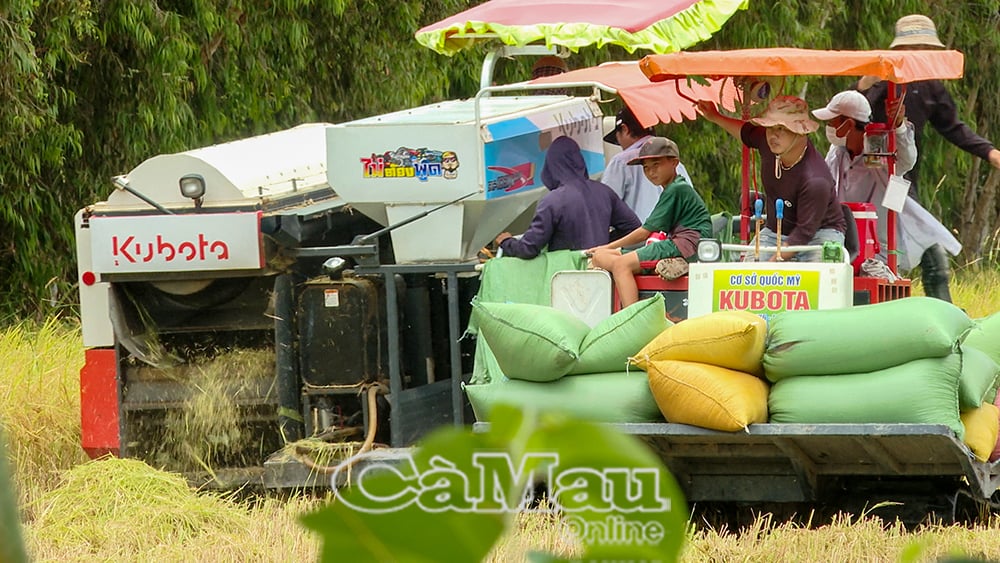
According to farmers, ST24 and ST25 rice varieties are being purchased by traders at 6,000-6,800 VND/kg, down 2,000-3,000 VND/kg compared to the beginning of the season; HB1 variety is only 4,000-5,500 VND/kg.
Mr. Nguyen Viet Khanh's family (Da Bac B hamlet, Da Bac commune) sowed 10 hectares of HB1 rice and said that in just one week, the price had decreased by 500-1,000 VND/kg, more than 4,000 VND/kg lower than the same period last year.
“Traders said that due to slow rice exports , they limited their purchases. When harvest time came, the price was lowered by another 200 VND/kg, but they had to accept it. With the current price, only those who save a lot of money can make a profit, while those who rent fields will definitely lose money,” Mr. Khanh shared.
The worry is even greater when the rice is ready for harvest but difficult to sell. Ms. Nguyen Thi My Nhan (Da Bac B hamlet) said that her whole family only depends on 4 hectares of rice, but after many days of running around looking for traders, there are still no buyers.
“The new school year has started, but the rice has not been sold yet. Everyone is very sad,” said Ms. Nhan.
Difficult to find traders after rice import suspension order
Rice farmers in Ca Mau are increasingly worried as finding traders has become increasingly difficult following the move to temporarily suspend rice imports under Executive Order No. 93 of the President of the Philippines. Many households have harvested but have not been able to sell their rice, despite having previously contacted and received promises from traders to buy.
Mr. Nguyen Minh Dua (Da Bac B hamlet, Da Bac commune) shared that he has been sleepless for many days due to worry: “I was very worried when I heard that the Philippines stopped importing rice. The rice was flooded by the rain, and the quality decreased. Previously, traders agreed to buy at 4,500 VND/kg, but when it was time to harvest, they refused and stopped buying.”
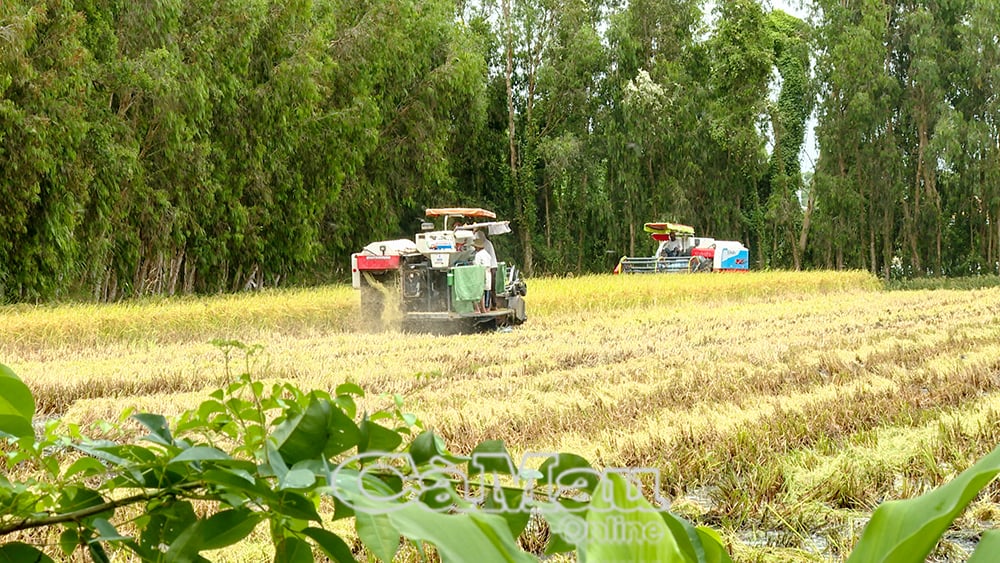
Meanwhile, the cost of seeds, fertilizers, pesticides and harvesters is increasing, making the burden of payment at the end of the season heavier. Mr. Nguyen Van Tuot, in the same hamlet, said that this summer-autumn crop, he harvested 81 bags of rice, but selling them all was still not enough to cover the debts: fertilizer, pesticides, seeds and land rent.
According to statistics, in the summer-autumn crop of 2025, Da Bac commune sowed more than 9,400 hectares, and has so far harvested over 6,500 hectares. However, the output harvested in the past 10 days has encountered many difficulties in consumption, especially after the Philippines temporarily stopped importing rice.
Mr. Nguyen Canh Hanh, Vice Chairman of the People's Committee of Da Bac Commune, said: "Currently, farmers are selling rice slowly and at low prices. There are traders and rice brokers who deposit money and then do not buy. The commune has invited these subjects to work to rectify the situation. At the same time, the People's Committee of the commune has requested the Department of Agriculture and Environment to support people in finding outlets as soon as possible."
In fact, many farmers are forced to sell their rice at very low prices, both because of concerns about not having an outlet when the Philippines stops importing, and because of pressure to pay for investment costs and prepare for the new crop.
From September 1 to October 30, 2025, the Philippines will temporarily suspend the import of milled rice according to Decree No. 93. In this situation, the Chairman of the People's Committee of Ca Mau province assigned the Department of Industry and Trade to coordinate with relevant units to urgently inform cooperatives, production households and traders to proactively plan production and business; guide appropriate harvesting, preservation and consumption of rice; support connections with traders, prioritize domestic consumption, export to other markets or temporary storage, avoid dumping at low prices.
Hong Nghi - Minh Luan
Source: https://baocamau.vn/gia-lua-ca-mau-lao-doc-sau-khi-philippines-ngung-nhap-khau-a122123.html


![[Photo] General Secretary To Lam attends the ceremony to celebrate the 80th anniversary of the post and telecommunications sector and the 66th anniversary of the science and technology sector.](https://vphoto.vietnam.vn/thumb/1200x675/vietnam/resource/IMAGE/2025/9/29/8e86b39b8fe44121a2b14a031f4cef46)
![[Photo] General Secretary To Lam receives US Ambassador to Vietnam Marc Knapper](https://vphoto.vietnam.vn/thumb/1200x675/vietnam/resource/IMAGE/2025/9/29/c8fd0761aa184da7814aee57d87c49b3)
![[Photo] Many streets in Hanoi were flooded due to the effects of storm Bualoi](https://vphoto.vietnam.vn/thumb/1200x675/vietnam/resource/IMAGE/2025/9/29/18b658aa0fa2495c927ade4bbe0096df)


![[Photo] National Assembly Chairman Tran Thanh Man chairs the 8th Conference of full-time National Assembly deputies](https://vphoto.vietnam.vn/thumb/1200x675/vietnam/resource/IMAGE/2025/9/29/2c21459bc38d44ffaacd679ab9a0477c)
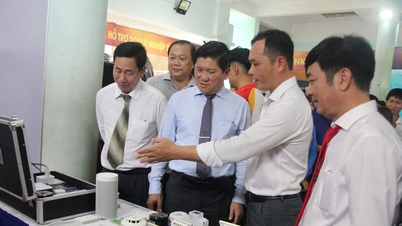

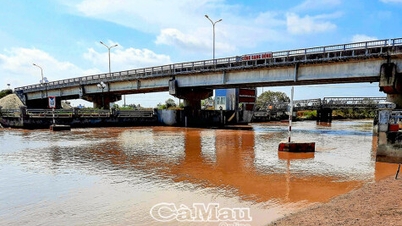
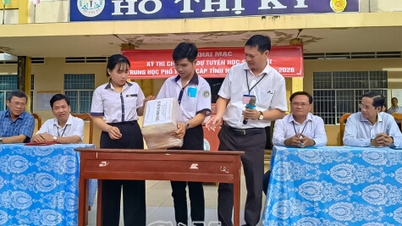

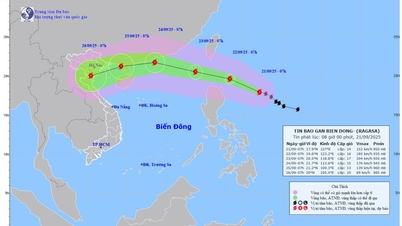



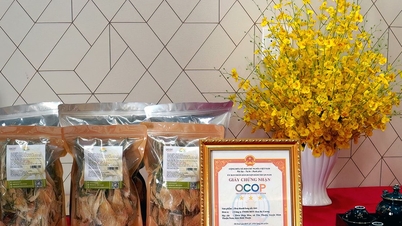



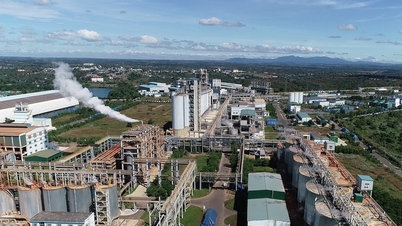

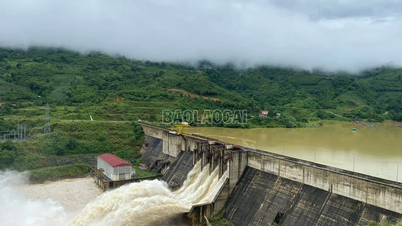

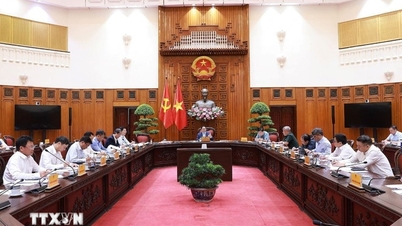







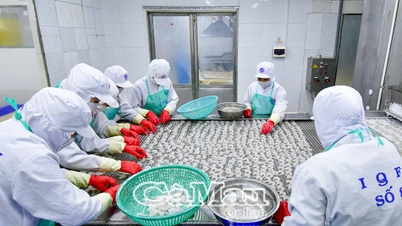
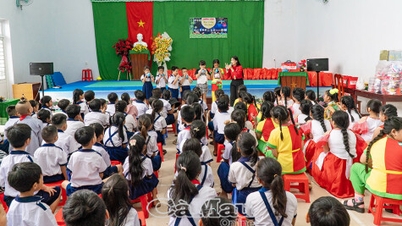

































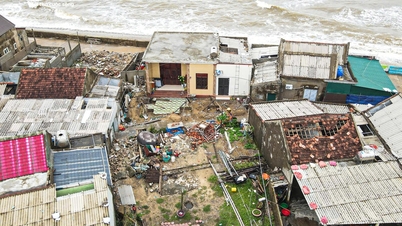



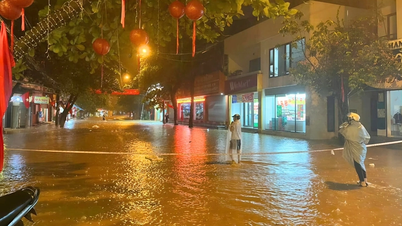









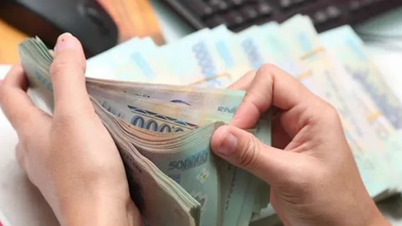
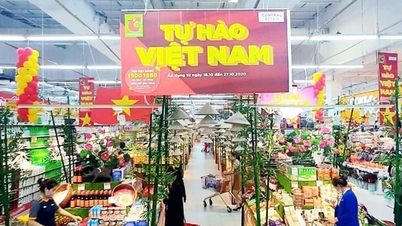


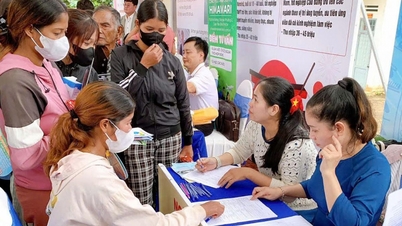
















Comment (0)